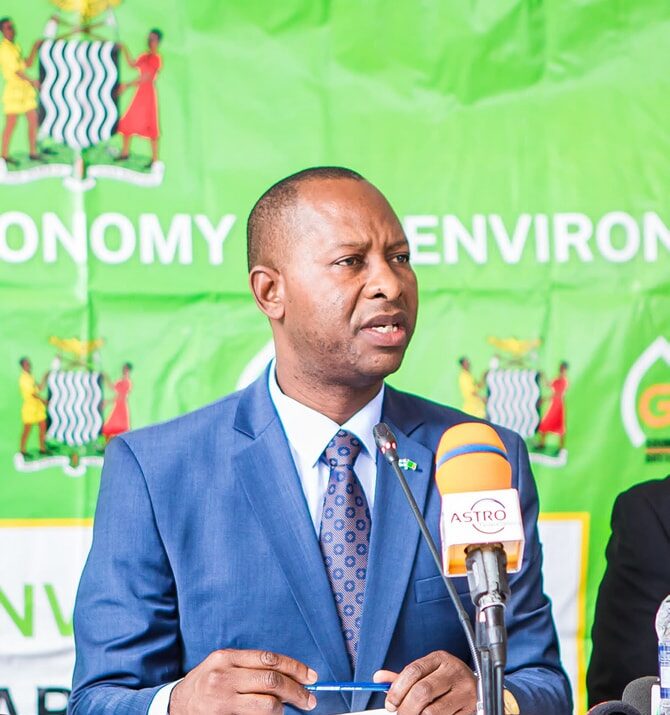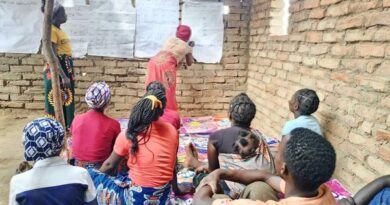COP-29 Falls Short on Financial Promises, Says Zambian Minister
The 29th Conference of the Parties (COP-29) has come under scrutiny for failing to meet its ambitious theme of “Finance COP.”
Zambia’s Minister of Green Economy and Environment, Hon. Mike Mposha, said that the conference, held in Baku, Azerbaijan, from 11th to 23rd November 2024, managed to secure only $300 billion in funding, a small part of the $1.3 trillion needed by developing countries to support their climate action plans.
Speaking during a media briefing on the outcomes of COP-29, Hon. Mposha described the frustrations of developing nations, which included walkouts and protests by groups like the African Group of Negotiators (AGN), the Least Developed Countries (LDCs), and the Group of 77 and China. These actions highlighted the growing discontent with inadequate financial commitments from wealthy nations.
Despite these setbacks, the Minister acknowledged that COP-29 achieved progress in other areas. Notably, it finalized the key frameworks for Carbon Markets under the Paris Agreement. These frameworks include rules for country-to-country carbon trading and a centralized mechanism for issuing carbon credits.
“These agreements are vital for countries like Zambia,” Hon. Mposha explained. “They will enable us to access new financial resources and technical support to strengthen our climate actions. Revenues from carbon trading will help us tackle pressing issues such as renewable energy and clean cooking solutions.”
Outside of the main negotiations, Zambia made significant strides through bilateral agreements. Hon. Mposha announced that the country signed two cooperation agreements and a Memorandum of Understanding (MOU) under Article 6 of the Paris Agreement with Sweden, Norway, and Singapore.
“These agreements are crucial as they allow Zambia to diversify its climate project portfolio,” said Hon. Mposha. “We are now expanding from nature-based projects to renewable energy and clean cooking initiatives. Countries like Sweden, Norway, and Singapore, known for their integrity in carbon trading, will provide ready markets for Zambia’s carbon credits.”
The agreements also pave the way for increased investment in renewable energy. Hon. Mposha highlighted Norway’s State Guarantee Scheme, which aims to reduce investment risks for renewable energy projects in developing countries.
“This scheme will attract both private and public capital, making renewable energy projects more affordable,” he said. “It’s a great opportunity for Zambia’s private sector to access financing for such projects, creating thousands of green jobs in the process.”
On the Global Goal on Adaptation, Hon. Mposha noted that some progress was made, with the adoption of indicators to measure adaptation action expected at COP-30 in Brazil in 2025. However, on mitigation, no consensus was reached on transitioning away from fossil fuels or addressing outcomes from the global stocktake conducted at COP-28.
Zambia also received support from the Global Green Growth Institute (GGGI), an organization committed to transforming economies toward green growth. The GGGI will assist Zambia in developing projects to implement the agreements signed at COP-29.
Hon. Mposha assured that the Government will follow up on the COP-29 agreements to ensure Zambia benefits fully. He emphasized the importance of a supportive policy and legal environment to encourage stakeholder participation in addressing climate change challenges.
“We are committed to ensuring that Zambia not only participates but also benefits from global climate initiatives,” he said. “Together, we can create a sustainable and prosperous future for all.”
The Minister concluded by urging all stakeholders, including the private sector and development partners, to collaborate with the Government to make Zambia a leader in green economic growth and climate resilience.



